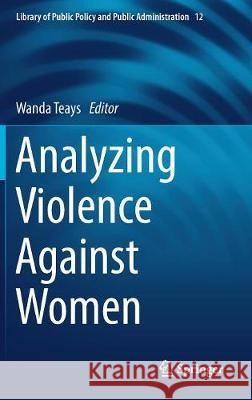Analyzing Violence Against Women » książka
topmenu
Analyzing Violence Against Women
ISBN-13: 9783030059880 / Angielski / Twarda / 2019 / 273 str.
Kategorie BISAC:
Wydawca:
Springer
Seria wydawnicza:
Język:
Angielski
ISBN-13:
9783030059880
Rok wydania:
2019
Wydanie:
2019
Ilość stron:
273
Waga:
0.59 kg
Wymiary:
23.5 x 15.5
Oprawa:
Twarda
Wolumenów:
01
Dodatkowe informacje:
Wydanie ilustrowane











